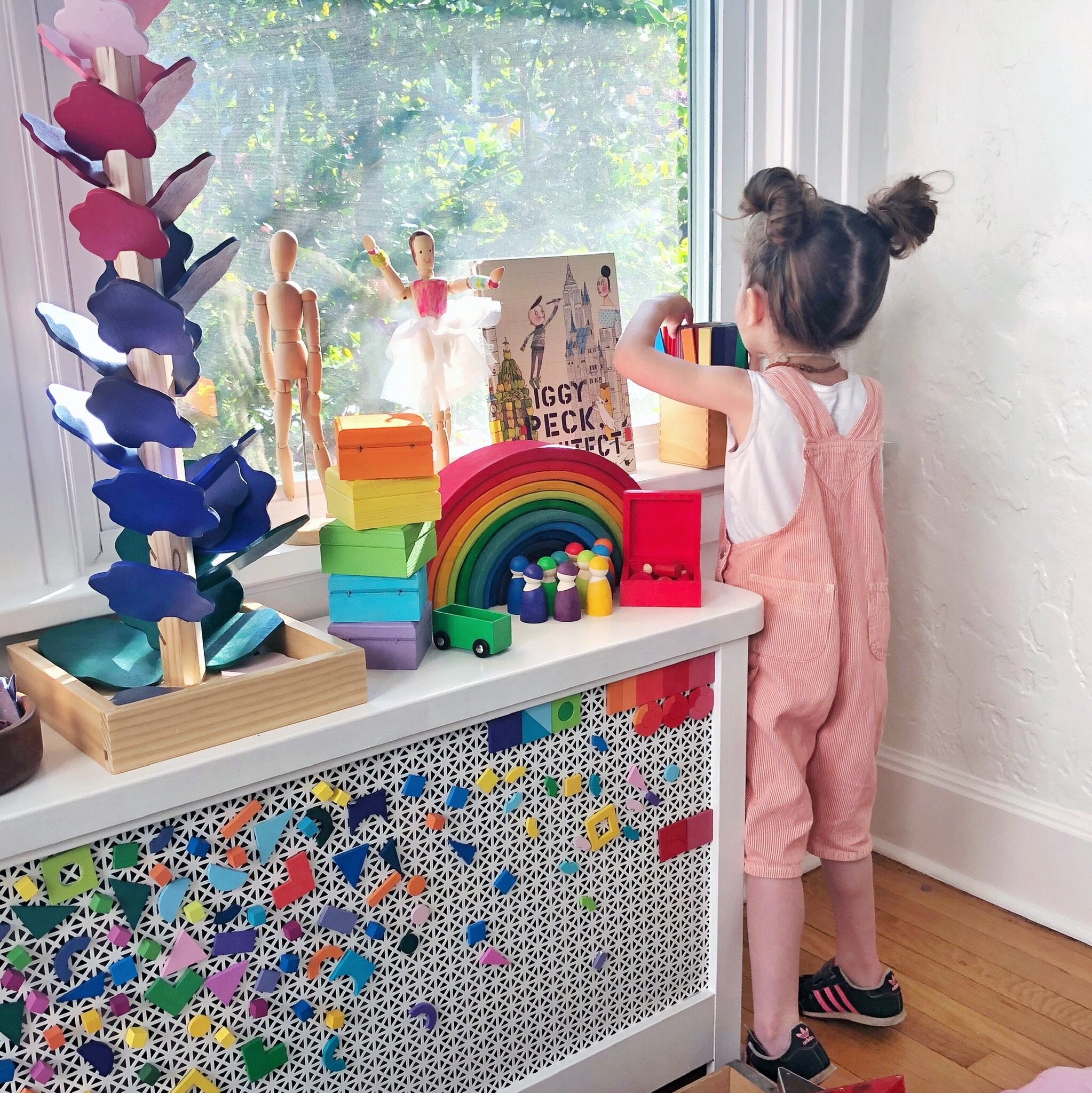Encouraging Independent Play: Strategies for Overcoming Parental Obstacles
/If your child is struggling to play independently, use these play tips to help toddlers, preschoolers, and grade schoolers.
Are your days filled with endless requests from your children to play with them? Do you have an endless to-do list and not nearly enough child-free time to tackle it? Don’t worry, this stage won’t last forever, but in the meantime use these expert-designed tips to get your toddlers, preschoolers, and grade schoolers playing independently. Not only will you end up with time back for yourself, but your little ones will be thinking critically, learning to regulate their emotions, and developing cognitive flexibility all through play.
Avoid Unstructured Screen Time
Make screen time predictable. Here’s why: We want children to learn to look inward when they’re bored or unsure what to do next. We want them to develop the habit of active play, not passive entertainment. When your child is sure about when their screen time will be (and when it won’t happen) they are more likely to spend time playing. If you want to learn how to use screens for your child’s intentional enjoyment, and not their default behavior, this post will help.
Expect Your Children to Push Back
Don’t change the plan because your child is complaining. If they complain of boredom and you start entertaining them, they’re going to expect that every time. Instead, reframe their cries of boredom as the space they need to come up with what they are going to do next. The more consistent you are, the better they’ll get at figuring it out. Here are some ways to respond when your kids are having a hard time getting started with play.
Make Space for Play in Your Main Living Area
Many parents dream of the perfect playroom for their child. Those who have created one often find that despite the purchase of the hottest toys and best organization bins, their children don’t use the playroom. A playroom that is tucked away in a basement or an attic usually won’t get used until children enter adolescence. Young children crave proximity to their grownups. Being able to see a parent or caregiver and check in with them gives young children the security they need to be able to settle down and play independently. Additionally, young children are more likely to spontaneously engage in play when they have access to play materials in their main living space. Learn more about this below.
Redefine Your Perspective on Your Child's Play
The definition of play is to engage in an activity for enjoyment and recreation rather than a serious or practical purpose. Playing with blocks and pretending with dolls are fantastic ways to play. But so are singing, coloring, bouncing a ball, wrestling, storytelling, dancing, etc. When adults embrace a more inclusive perspective on play, they are better prepared to nurture their unique child’s play.
Schedule in Time For Unstructured Play
Research conducted by Hofferth and Sandberg in 2001 explored how children's time usage has evolved. Their findings revealed that as structured activities and academic pressures have grown, children have had less opportunity for unstructured, self-directed play. This shift has resulted in a greater dependence on passive forms of entertainment like television and video games. The less time children spend playing, the harder it becomes for them. Scheduling time for consistent unstructured play will result in improved problem-solving abilities, better emotional regulation, and enhanced self-confidence and independence. Most importantly, it makes play easier and more attractive to children.
If you want to learn more about implementing quiet time and independent play for your family, our best-selling audio course is for you. Here is what one participant said:
Since your course, I have had at least 45 minutes every. Single. DAY! And some days they ask to play longer.










Rescuing them from discomfort also robs them of resilience.